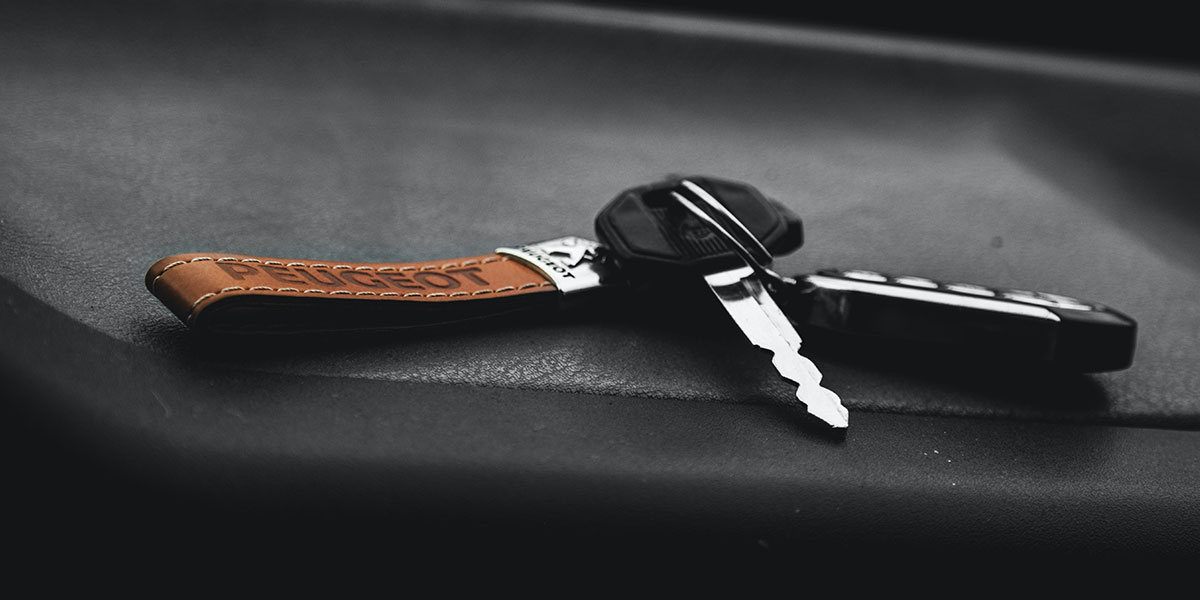This guide covers everything UK drivers need to know about returning a financed vehicle, from legal protections under the Consumer Credit Act to voluntary termination, surrender and alternatives like settlement or part-exchange.
Whether you’re deep into a PCP agreement or just starting a hire purchase plan, we’ll walk you through your options and help you weigh up the next best move when you want to return a car on finance.
Can you return a car on finance in the UK?
The short answer is yes. The long answer? How and when you can return a car depends on the type of finance you’ve taken out and how far you are into the agreement.
If your car is on a personal contract purchase (PCP) or hire purchase (HP) agreement regulated by the Consumer Credit Act 1974 you may have a legal right to end it early through something called voluntary termination, once you’ve repaid 50% of the total amount owed.
Before you make a decision it’s important to understand that returning a car isn’t always cost-free, especially if you haven’t hit that 50% threshold yet or your car has excess wear and tear. For other types of finance, like personal contract hire (PCH), your rights are more limited and returning a car may involve hefty fees that will leave you out of pocket.
Voluntary termination explained
Can you return a car on finance with a PCP or HP contract? Yes. Voluntary termination (VT) is a legal right under Section 99 of the Consumer Credit Act 1974. It allows you to end a PCP or HP agreement early by returning the car, provided you’ve paid at least 50% of the total finance cost, including fees and interest.
Eligibility
To qualify for voluntary termination:
- You must be on a regulated PCP or HP agreement.
- You must have paid (or be willing to pay) 50% of the total amount owed. This includes the car’s price, interest and any fees included in the agreement.
For PCP, the balloon payment is also counted. If you’ve not yet reached 50%, you may still terminate early by topping up the balance to hit that figure.
How to start the process
1. Get in touch with your finance company in writing (email or post)
Want to know more about whether you can return a car on HP finance? It starts with an email or letter. Let your lender know you’d like to explore returning your car, whether that’s via voluntary termination or another route. It doesn’t need to be War and Peace but putting it in writing gives you a clear record.
2. Ask for your settlement balance and check how much you’ve paid so far
This helps you figure out if you’ve crossed the 50% mark (which matters if you’re aiming for voluntary termination). The finance company will usually send a formal breakdown so you can see exactly where you stand.
3. Book a time to hand the car back (and expect an inspection too)
When can you return a car on finance? Before collecting the car, the lender will likely want to give the vehicle a once-over to check for wear and tear, mileage and overall condition. You might be asked to drop it off somewhere, or they could pick it up. Either way, give it a clean and make sure there’s nothing left in the glovebox!
Pro tip: Keep a paper trail. Save every email, letter and receipt. If you chat over the phone, follow it up with a quick note by email. A “just to confirm” goes a long way if anything’s disputed down the line.
Conditions to be aware of
The car needs to be in decent condition
Fair wear and tear (think worn tyres or a few light scuffs) is okay but expect the lender to raise an eyebrow (and possibly a repair bill) for anything major. For example, dents, deep scratches or a cracked windscreen. If the car’s been well looked after, you should be fine.
Mileage limits matter (for PCP agreements)
Can you return a car on finance if you’ve gone over the agreed mileage? Yes, but you’ll likely be charged for the extra. It’s usually a few pence per mile but it can add up fast, so double-check your contract and don’t guess.
Missed payments or arrears can muddy the waters
You might still be eligible to return the car if you’ve fallen behind on payments, but the lender may ask for arrears to be cleared first. It’s always better to be upfront.
Impact on credit score
Voluntary termination isn’t a default or missed payment so if handled properly, it won’t damage your credit score. The fact you used your VT rights may be recorded on your credit file, but it’s not a negative mark.
Voluntary surrender: what it means
If you haven’t yet reached the 50% repayment threshold and can’t afford to top it up, you may still be able to return the car. This is called voluntary surrender and it’s very different from VT.
Key differences from voluntary termination
You give up the car, but you’re still liable for the remaining balance
Unlike voluntary termination, voluntary surrender doesn’t wipe the slate clean. You hand the car back but you’re still responsible for repaying the remaining balance, which could be more than expected.
The finance company usually sells the car at auction
Can you return a car on finance early by selling it yourself? Probably not. The vehicle is typically sold off at auction by the lender, and the sale price is knocked off your remaining finance. If the car sells for less than what you owe (which it often does), you’ll be expected to make up the difference, aka the shortfall.
It’s treated more like repossession than a clean break
Because it’s not a legal right like voluntary termination, voluntary surrender can be recorded on your credit file in a way that doesn’t look great to future lenders. It’s not always flagged as a ‘default’ but it’s still a red flag.
Financial impact
Voluntary surrender can have serious financial consequences. You want to make sure you understand exactly what’s at stake before going down this path.
You may still owe a chunk of cash
Even though you’ve returned the car, the remaining finance doesn’t disappear. If the auction value is low, the leftover balance could be significant. And you’re on deck to cover the difference.
Your credit score could take a hit
Missed payments or unpaid shortfall? That could dent your credit score. If you struggle to repay what’s left, it could show up on your credit file and make future borrowing more difficult.
It’s not a protected right like VT, so you’ve got less control
Voluntary termination is enshrined in law. Voluntary surrender isn’t. That means fewer protections, and usually, worse outcomes.
In short? Voluntary surrender is usually a last resort. If voluntary termination or settlement is on the table, explore those first.
Can you return a car on PCH (lease)?
Yes, but only through voluntary surrender. PCH agreements don’t fall under the Consumer Credit Act, which means you don’t have the legal right to voluntary termination. If you want to return the car early, you’ll need to follow your lease provider’s early termination policy (and be prepared for potential fees).
Termination options
- Most lease agreements require you to pay the full remaining balance if you want to end early.
- Some leasing companies offer early termination terms, like paying 50% of your remaining rentals.
- Others may allow lease transfer, where someone else takes over the contract (though this isn’t always guaranteed).
Recommendations
- Check your lease agreement for early termination clauses.
- Contact your leasing provider and request a termination quote.
- Compare the cost of ending early vs. keeping the vehicle.
The verdict on whether you can return a car on finance with PCH? Yes, but PCH agreements are less flexible than HP or PCP, so exiting them early can be expensive.
Other ways to exit your car finance early
Voluntary termination and voluntary surrender aren’t your only options. Here are other common ways to end a finance agreement ahead of schedule.
Early settlement
You pay off the remaining balance of your finance agreement in full. This gives you full ownership (for HP or PCP).
Pros:
- No ongoing repayments.
- You may save on interest.
- You own the car outright (except for PCP, where you may still need to pay the balloon payment).
Cons:
- Requires a large one-off payment.
- You need to request a settlement figure from your lender.
Part-exchange
You trade your current car in at a dealership and use its value to settle the outstanding finance.
Pros:
- Quick and simple. The dealer handles the paperwork.
- If your car’s value exceeds your remaining balance, the extra can go toward your next vehicle.
Cons:
- Can you return a car on finance if your car’s worth less than the owed amount remaining? Yes, but you’ll need to pay the difference (called negative equity).
- You may not get the car’s full market value from a dealer.
Renegotiation
If you’re struggling financially, it’s worth contacting your lender to discuss alternatives. Our advice? Be as honest as possible. Good lenders are usually more understanding than you might think.
Options may include:
- Extending your loan term to lower monthly payments.
- Requesting a payment holiday or temporary reduction.
- Switching to a different agreement that better suits your needs.
Don’t wait until you miss a payment. Lenders are more open to helping if you communicate early.
How to return a financed car: step-by-step
Returning a car on finance doesn’t have to be overwhelming. Here’s how to handle it from start to finish:
Review your contract terms and agreement type
Confirm whether you’re on PCP, HP or PCH. Request your full contract and look for terms on early termination, mileage and condition.
Check how much you’ve repaid
You may qualify for voluntary termination if you’ve repaid at least 50% of the total amount owed. If you’re close to that mark, it’s worth holding off a bit as VT usually works out better than voluntary surrender.
Speak to your lender
If using voluntary termination, notify the lender in writing. Include your contract number and clearly state your intent to terminate under Section 99 of the Consumer Credit Act.
Request a settlement or termination quote
Ask your lender for your current settlement balance and a quote based on the return option you’re considering. Once you’ve got the figures, you can weigh up VT, early settlement, part-exchange or surrender to see which makes the most sense.
Arrange a return date and inspection
Your finance company will usually inspect the vehicle and confirm how it’ll be returned (either by drop-off or collection). Beforehand, give the car a clean, take out all your personal belongings and if you can, fix any obvious damage.
Document everything and keep copies
Hold on to all communication, including your return date documents and any final balance confirmations. A solid paper trail makes it much easier to resolve any issues later down the line.
FAQs
Can you return a car on finance early without penalty?
If you’ve repaid 50% of a PCP or HP agreement, you can terminate it without additional fees under voluntary termination. Outside of this, you may owe more.
Will returning a car affect my credit score?
Voluntary termination does not negatively impact your credit score, provided you follow the process properly. Voluntary surrender or repossession can damage your score.
What happens if I return the car before paying 50%?
You’ll need to top up the difference to meet the 50% threshold or consider voluntary surrender, which might leave you liable for the remaining balance.
Is voluntary termination a good idea?
Yes, for many it’s a fair and legally protected way to exit finance early. Just make sure the car meets wear and tear standards and that you’ve paid the required amount.
What if I’ve damaged the car or exceeded mileage?
You might face additional charges. PCP agreements, in particular, include excess mileage and condition clauses. Clarify any potential costs before pursuing this route so there are no nasty surprises down the line.
Can you return a car on finance if I’ve lost my job?
If you’ve hit the 50% threshold, yes, you can exercise voluntary termination. Otherwise, speak to your lender about hardship options, deferment or renegotiation before missing payments.
Need to return your car?
Worried about what happens if you take out car finance and things change? You’re not the only one. Car finance is a big financial commitment so it’s normal to ask questions like “what happens if my circumstances change?” and “can you return a car on finance without penalty?”
Maybe your income takes a knock, your expenses change or the monthly payments just don’t feel manageable anymore. Whatever the reason, it’s important to know this: you do have options. And you certainly won’t be on your own.
At My Car Credit, we don’t just help you find the right car finance. We stick around if things shift. From voluntary termination to refinancing or exploring more affordable alternatives, our team can support you if you ever need to rethink your agreement down the line.
We’ll help you understand your rights, explain your options clearly and work with you to find a solution that keeps you on track, without the stress. And if you have any questions about whether you can return a car bought on finance, we’re just a phone call away.
Still weighing things up?
When you work with My Car Credit, you’re not just signing up for car finance. You’re choosing support that goes the distance. This includes hands-on help if you choose to end your contract early.












